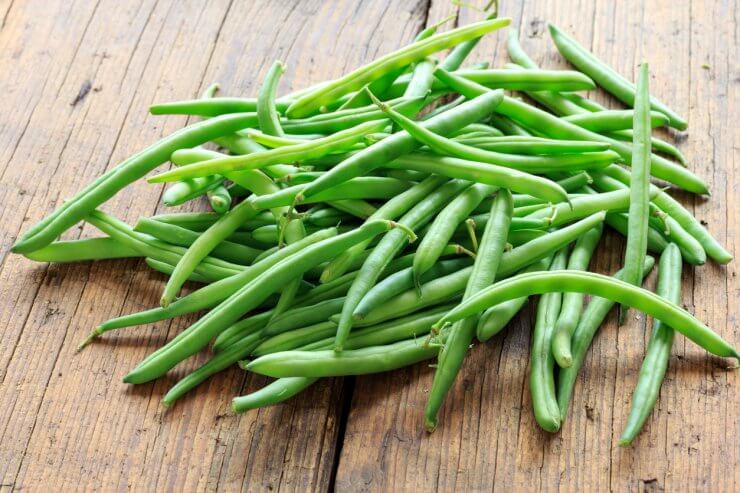
Health benefits of green beans

Health benefits of green beans
The green bean is one powerful legume! Rich in antioxidants and plant compounds, green beans protect your heart, improve digestion, lower your blood pressure, protect against cancer, help create strong bones, improve blood clotting, and help control blood sugar. The vitamin C in green beans helps boost your immune system and helps neutralize free radicals in your body. And your body can’t store vitamin C, so you need to be sure to get your daily requirement.
Here are some of the other ways green beans contribute to good health—plus a few notes of caution.
Heart health
Heart disease is the most common form of death worldwide. Consumption of fruits high in vitamin C, like green beans, has been linked to reduced heart disease.
Vitamin C also contributes to lower incidences of stroke, especially among people who are overweight or have high blood pressure. However, people who drink or smoke heavily are less likely to enjoy the added benefits of vitamin C.
The fiber in green beans can help decrease blood cholesterol levels.
Cancer prevention
Studies have linked green beans to reducing the risk of cancer and slowing tumor growth, due to the chlorophyll they contain. Though promising, more research, especially on humans, is needed to confirm these anti-cancer effects.
Bone and blood health
The high amount of vitamin K in green beans plus a respectable amount of calcium contribute to growing strong bones and preventing fractures. Vitamin K also promotes healthy blood clotting, and the iron in green beans—along with other iron-rich foods—will help avoid anemia.
Weight loss
Green beans contain soluble fiber, so eating them may help people feel full sooner and resist cravings.
Digestive health
The fiber content in green beans can help your digestive system run smoothly, preventing constipation. Moreover, green beans are a low FODMAP food. FODMAPs are carbohydrates that may not be digested or absorbed well. Therefore, people with digestive problems, such as irritable bowel syndrome, are often able to tolerate green beans well.
Pregnancy health
Folate is essential for the healthy development of babies in order to prevent neural tube defects, such as spina bifida. Prenatal vitamins include folate (also called vitamin B9), but green beans are a great natural source of this essential vitamin.
Skin health
The vitamin C and antioxidants in green beans may contribute to healthier skin—reducing the development of wrinkles and contributing to more hydrated skin and fewer blemishes.
Green Bean Health Risks
Lectins
Green beans may look delicious on the vine—but try to resist taking a bite. Most green bean cultivars contain lectins, a protein that works as an antifungal and natural insecticide for plants. They bind to the surface of cells in your digestive system, causing symptoms like nausea, diarrhea, vomiting, and bloating if consumed in high amounts. Fortunately, the heat from cooking green beans breaks down the lectins, making them safe to eat and enjoy.
Blood thinners
If you take blood thinners, consult your doctor before adding green beans to your diet. The vitamin K in legumes like green beans could interfere with your medication, affecting how your blood clots.
Phytic Acid
Phytic acid can bind with certain minerals, impeding your body from absorbing them. If you have a mineral deficiency, consult your doctor before putting beans on your plate.
Sodium
Though fresh and frozen green beans are natural low in sodium, many green bean canning recipes call for adding salt. If you are trying to limit your sodium intake, be sure to rinse the beans well before eating.
Did you know that green beans are so healthful? Did you know that there were potential health risks involved with consuming green beans, particularly raw green beans? Please tell us what aspect of green beans you enjoy most.



